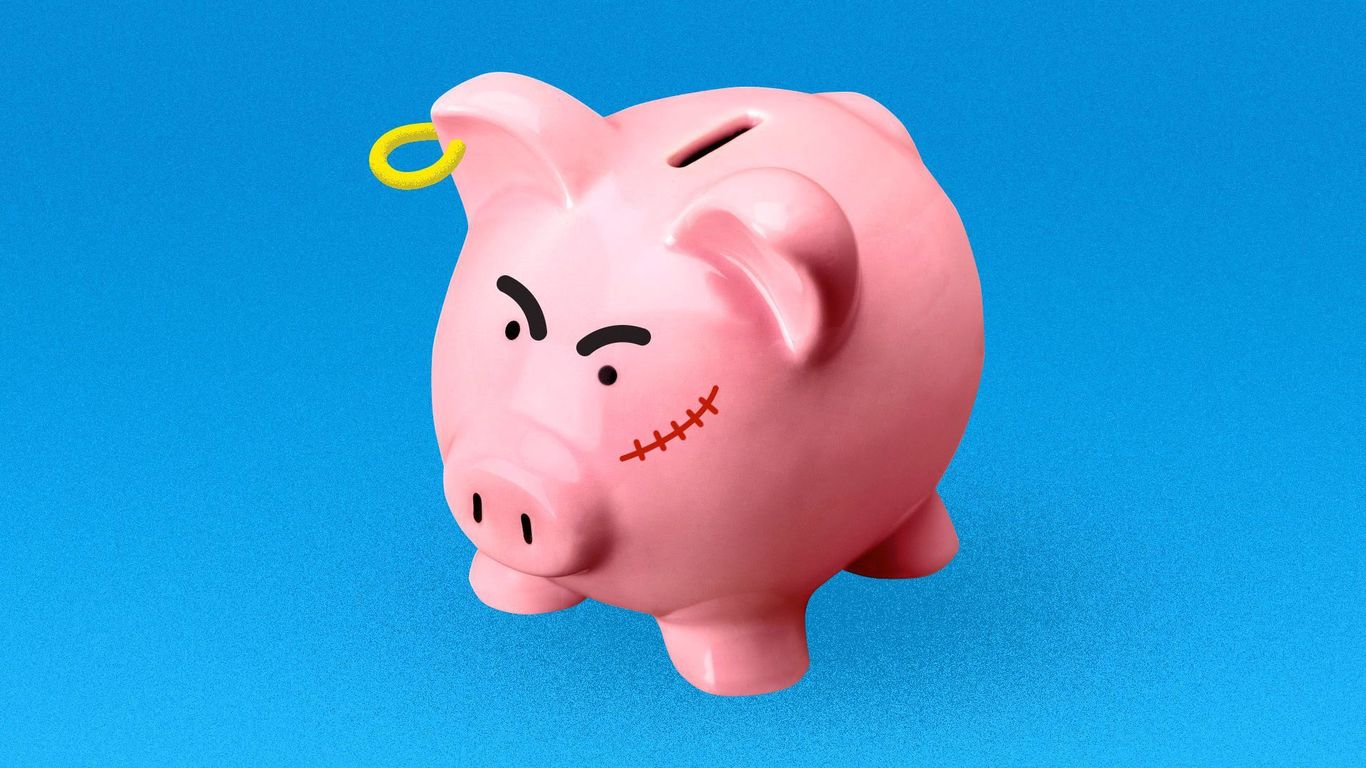
Financial services and the banking sector could undergo significant changes if Joe Biden wins and Democrats take control of the House and Senate.
What we’re hearing: “With a couple of vote margin in the Senate there’s a lot that Democrats can try to do to go after how financial products are accessed and how they’re priced,” Jaret Seiberg, financial services and housing policy analyst for Cowen Washington Research Group, told me on the “Voices of Wall Street” podcast in early October.
- “The unifying theme for progressive Democrats is that they want to flatten pricing. They want wealthier customers to really be subsidizing less wealthy people who are accessing financial services.”
- Additionally, “they want the government to be financing more financial services.”
Driving the news: Democratic Reps. Alexandria Ocasio-Cortez and Rashida Tlaib on Friday introduced a bill to create a public banking system through which the Fed and Treasury Department would recognize, offer grants and open credit facilities for nonprofit banks.
- These banks would be barred from charging fees on checking or savings accounts, requiring minimum balances and levying interest rates of more than 15% on things like credit cards.
- A new Bankrate.com survey found account fees and minimum balance requirements are at their highest levels on record.
The intrigue: A task force set up by Biden and Sen. Bernie Sanders in July also called for the creation of a government-run banking system set up through the Fed and the U.S. Postal Service.
Watch this space: A Biden win could also result in a revamp of the Fed’s Main Street Lending Program that turns it into a full-fledged stimulus program designed to jumpstart the recovery, Seiberg said in a note to clients Monday.
- The program has provided about 400 loans totaling $3.7 billion, or about 0.6% of its $600 billion funding.
With the revamp, Main Street could “become a source of inexpensive credit rather than a lender of last resort program,” Seiberg tells me in an email.
- “A revamped Main Street [gets money] to those companies hurt by COVID-19. And it could be done in a way that protects the banks by having them as the brokers for the program rather than as risk-taking originators.”
- That would also buoy the commercial real estate market by providing credit to restaurants, hotels and small businesses, he added, “which means those companies could then pay their rents and commercial mortgages.”
Read More..